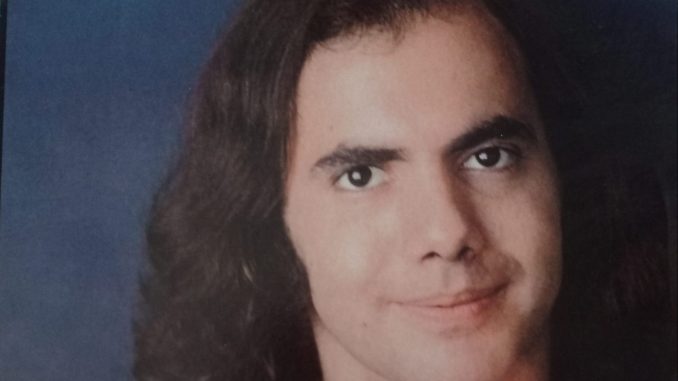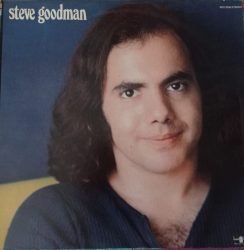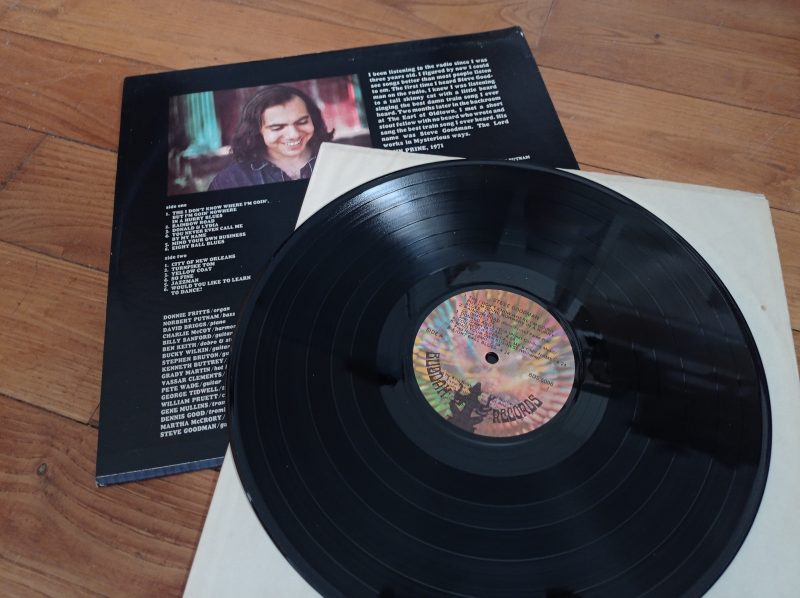
 Back in the early 1990s, I made a decision that still has me waking up in a cold sweat from time to time; I sold my vinyl collection! It was, in retrospect, a decision of monumental stupidity but I was moving home at the time and really couldn’t face dragging them all with me, it was a big collection. This being the 1990s, and CDs reigning supreme, no one could see a future for vinyl and I could barely give it away. I sold the entire collection for £250 and was lucky to get that. Of course, I’d been amassing vinyl since my early teens and I had single albums that, in today’s market, would fetch £250 each but, such is life. Obviously, I’m not bitter. Much.
Back in the early 1990s, I made a decision that still has me waking up in a cold sweat from time to time; I sold my vinyl collection! It was, in retrospect, a decision of monumental stupidity but I was moving home at the time and really couldn’t face dragging them all with me, it was a big collection. This being the 1990s, and CDs reigning supreme, no one could see a future for vinyl and I could barely give it away. I sold the entire collection for £250 and was lucky to get that. Of course, I’d been amassing vinyl since my early teens and I had single albums that, in today’s market, would fetch £250 each but, such is life. Obviously, I’m not bitter. Much.
I started rebuilding a vinyl collection around 8 or 9 years ago, initially telling myself I’d only buy jazz on vinyl, an idea that lasted about a month, and while I’ll never regain the albums I lost, I do get a lot of joy out of rummaging through charity shops and flea markets, looking for bargains and the occasional gem, one such gem being Steve Goodman’s eponymous debut for Buddha Records, released in 1971.
Now, I should say that this album wasn’t in my original vinyl collection. I didn’t discover Steve Goodman until I heard his great song ‘City of New Orleans’ much later and went looking for the name of the songwriter. Having finally discovered Steve Goodman, I was more than happy to find this album, some years later, at a record fair, I think it was in Tunbridge Wells, where I picked it up for about £6, if memory serves. On first playing, ‘City of New Orleans’ is the stand-out track but there are some good songs on here, most of them written by Goodman himself. It includes what is probably his second best known song, co-written with close friend John Prine, ‘You Never Even Called Me By My Name’. Prine originally distanced himself from the song, because of its novelty nature and because he “didn’t want to offend the country music community”. His stance shifted a bit when singer David Allan Coe released his cover version as a single and it spent 17 weeks on the Billboard Country charts, peaking at number 8.
Another outstanding Goodman composition on the album is the quite beautiful, ‘Would You Like to Learn to Dance?’. It’s typical of Goodman’s relaxed and easy style and a great example of the songs he wrote – simple melodies that could be surprisingly difficult to master for other players. Goodman always had the ability to make playing and singing songs sound easy, and this album is a fine example of that talent. It would be fair to say it’s not a great album, though it is a very good one. As John Bauldie remarked in Q Magazine, while reviewing Goodman’s career, this album was “essentially a recording of the best of his folk club repertoire”. As a result, in addition to his own compositions and co-writes, six of the tracks in total, there are songs from Donnie Fritts and Dan Penn (‘Rainbow Road’), ‘Jazzman’ written by Edward Mark Holstein, a version of the Hank Williams song ‘Mind Your Own Business’, one of the Johnny Otis song ‘So Fine’ and a very good cover of John Prine’s ‘Donald and Lydia’. Produced by Norbert Putnam and Kris Kristofferson, the man who discovered Steve Goodman and got him his recording contract with Buddah Records, it performed well enough for Buddah to give him a second album release (1972’s ‘Somebody Else’s Troubles’) before he moved over to Asylum Records. Unsurprisingly, Puttnam and Kristofferson were able to put together an impressive set of musicians for the recording, including Vassar Clements on fiddle, Grady Martin and Stephen Bruton on guitar, and Ben Keith on dobro and pedal steel. Puttnam himself was the bass player for the recordings, having started out in the Muscle Shoals house band, and Kristofferson contributes backing vocals, as does John Prine. Prine also contributes a great quote to the rear cover of the album –
“I been listening to the radio since I was three years old. I figured by now I could see songs better than most people listen to ’em. The first time I heard Steve Goodman on the radio, I knew I was listening to a tall skinny cat with a little beard singing the best damn train song I ever heard. Two months later in the back room at The Earl of Oldtown, I met a short stout fellow with no beard who wrote and sang the best train song I ever heard. His name was Steve Goodman. The Lord works in Mysterious ways.” (John Prine, 1971)

Steve Goodman wasn’t with us for long; he died in 1984, from leukemia, at the age of 36, by which time ‘Cool Hand Leuk’, as he would refer to himself, had managed to produce another 8 albums and there have been a further 8 albums released posthumously, the last being 2021’s ‘It Sure Looked Good on Paper’, a compilation of 20 previously unreleased studio demos.
This eponymous first album finally got a CD release in 1990, on the Sequel Records label, and a CD reissue in 1999, when two bonus tracks were added, ‘Election Year Rag’ and ‘Georgia Rag’.
Availability:
The vinyl album is not particularly rare, though it didn’t sell that well originally, there seem to be plenty out there if you go looking for them, though the majority of them are in the US as you might expect. Looking on Discogs you can find the album for as low as $3, though the shipping costs mean you’ll actually pay around £30 all told. In Europe, an average price of around £15 would seem to be the norm. Amusingly, the CD and CD reissue are much harder to find and can sell for as much as 40 euros in the European market!
Well worth keeping an eye out for the vinyl at record fairs and in second hand stores. ‘City of New Orleans’ really is “the best damn train song I ever heard”.



i met steve in 1979 when he played in Edgartown mass great to see this article
Thanks Toby, glad you enjoyed it. I’m very jealous of anyone who managed to see Steve live, so actually meeting him must’ve been a real treat.